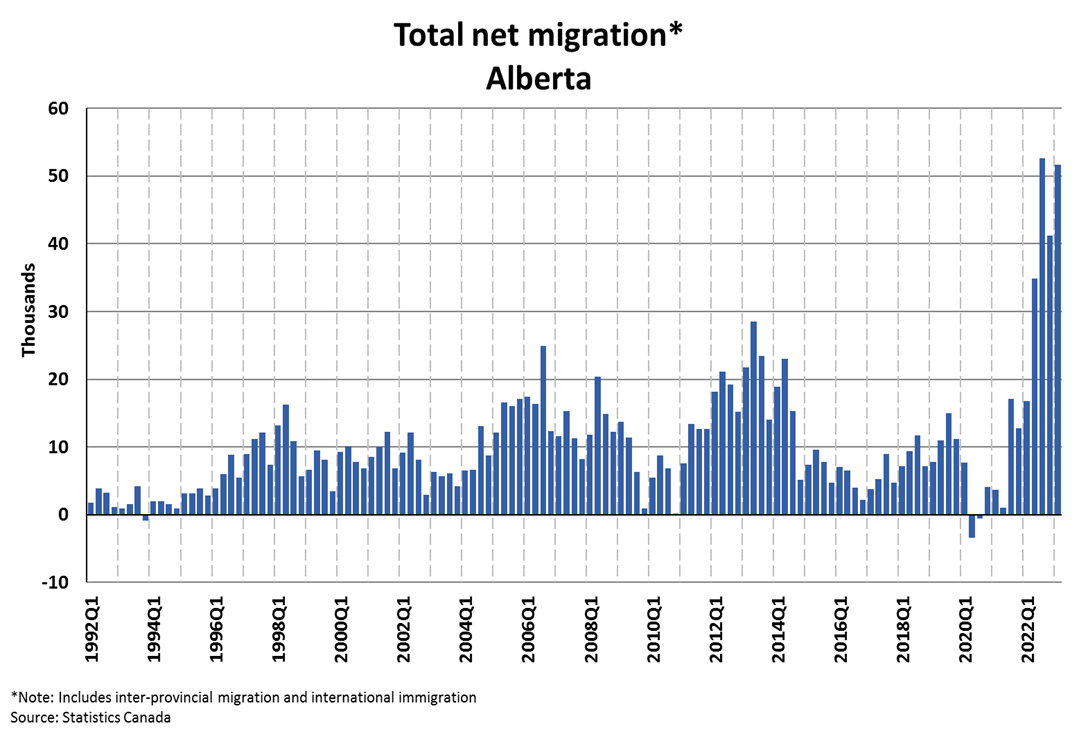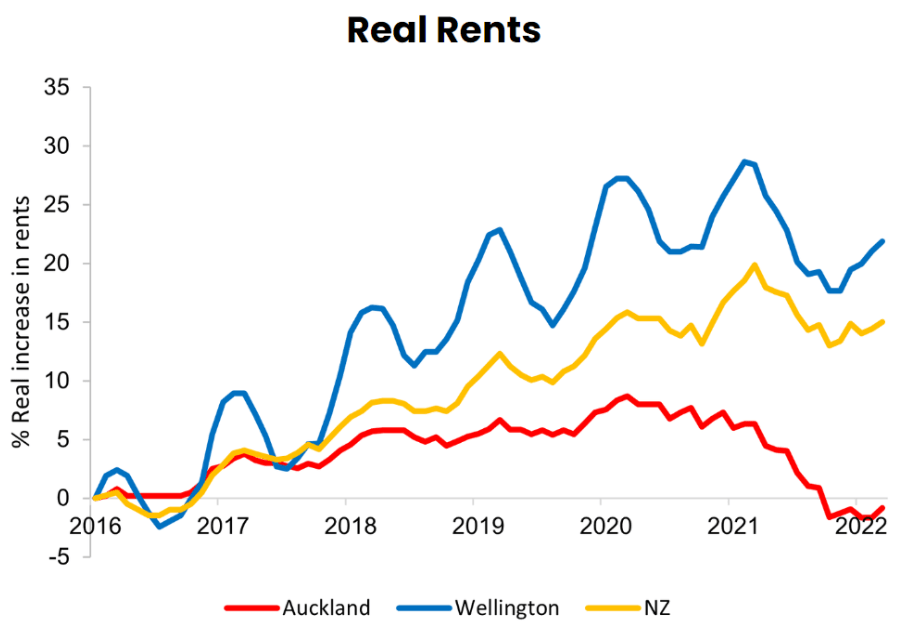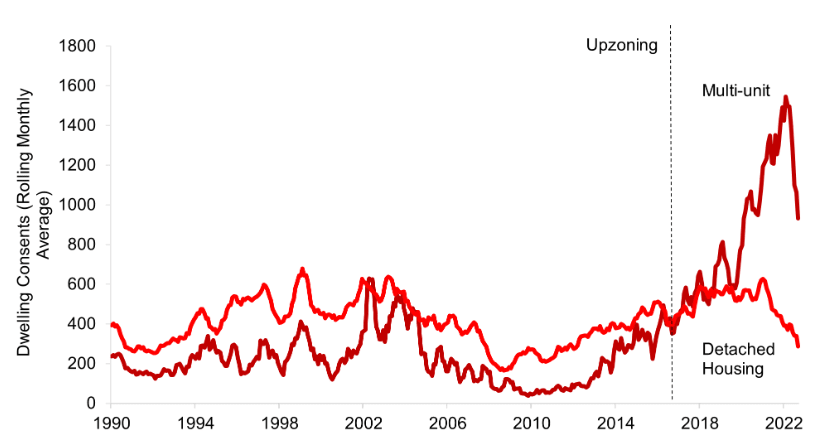| City | Rent (1 Bed) | Change since last year |
|---|---|---|
| Vancouver | $2,988 | +13.1% |
| Toronto | $2,610 | +10.5% |
| Ottawa | $2,058 | +11.0% |
| Calgary | $1,728 | +21.6% |
| Edmonton | $1,279 | +18.0% |
| Data source: Rentals.ca August Rent Report | ||
In Vancouver, where the vacancy rate is under 1%, it now costs more than $3000/month to rent a 1-bedroom apartment. In Toronto, it's more than $2500/month. For most young residents, homeownership in these cities is entirely out of reach. Priced out of cities (big and small) across the country, Canadians are moving to Alberta at record numbers in search of affordable housing. But if we don't build enough homes to keep up, then we won't stay affordable for very long.

In fact, housing costs here have already started to surge. In Calgary, the average rent for a 1 bedroom apartment is now up to $1718/month—that's about 3 weeks of pre-tax earnings for a full time minimum wage worker. And in just the past year, rents in Edmonton have risen 18% while our vacancy rate dropped from 7% to 4%, reaching a 10-year low.
The crux of the issue is that we don't have enough homes. In Canada, we build fewer houses today than we did back in 1976 even though population growth has more than tripled. We have the fewest houses per person out of all G7 countries. There isn't some massive secret supply of vacant homes. Canada just doesn't have enough homes.
For decades, zoning bylaws in Canadian cities have outlawed medium density housing by default on the vast majority of residential land. In Edmonton, there are entire neighborhoods where the only infill housing that can feasibly be built under our current rules are $600k+ detached/semi-detached houses. To build anything denser would require a long, risky and expensive rezoning process. And even in areas where row houses, multiplexes and small apartments are allowed, they face many onerous restrictions that make them significantly more expensive to build.
If Edmonton is to remain affordable, then we need to remove barriers to building new homes in existing neighbourhoods. Here's how this reduces housing costs:
Land for medium density housing will become much less scarce, and therefore cheaper. Combined with a shorter and less risky approval process, many new housing projects will make financial sense to build. This will boost our housing stock, helping to keep rents in check.
It will enable more affordable housing options. Not everyone wants or can afford a large detached house, but in many neighborhoods there are few alternatives. The new zoning bylaw will allow rowhouses, multiplexes and small apartments (3 storeys or less) in every neighbourhood.
A major contributor to the high price of infill housing is the cost of purchasing land and demolishing existing structures. Our new zoning rules would permit higher density housing, allowing builders to spread those fixed costs over more units with a larger total living space.
Auckland, New Zealand is a rare example of a city that undertook zoning reform as comprehensive as ours. Since upzoning, their housing starts have skyrocketed and their rents stayed flat (adjusted for inflation), even though they rose rapidly in the rest of the country. Sophisticated analysis from the University of Auckland shows that ~21,000 extra homes were built over just 5 years as a direct result of the zoning reform. That’s about 4% of their entire housing supply that only exists because zoning laws in Auckland had been relaxed.
Here's a graph that shows how rents have changed in Auckland since they updated their zoning bylaw compared to the rest of New Zealand. Source

This graph shows how housing starts have skyrocketed in Auckland since they updated their zoning bylaw. Source

Step 1: Sign up for our mailing list.
We're empowering housing advocates with resources and information to make an impact. Get started by joining our mailing list.
Step 2: Follow us on socials. Visibility generates attention. Help us get our message out to people where they're at by following us and sharing liberally.
Step 3: Join Discord. Get to know other housing advocates, attend live events together, and build a movement towards change